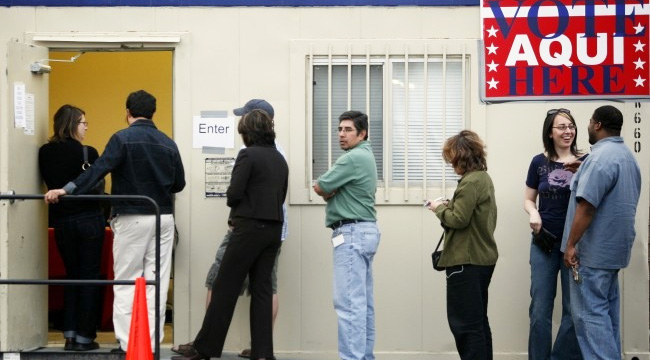
Every time the restrictive Texas voter ID law, SB14, and its revised descendent SB5, land on the desk of U.S. District Judge Nelva Gonzales Ramos, she rules against them. Over three rounds, Ramos has found that SB14 and SB5 not only discriminate against minorities but do so intentionally. Still, Texas keeps trying to adjust the law and push it through. Now Ramos has laid down a fourth voter ID ruling, and the second on SB5, again finding that the bill fails to address the numerous concerns over SB14 that have been considered by the Supreme Court, the Department of Justice, the 5th Circuit Court of Appeals, and herself over the past six years:
“SB 5 does not meaningfully expand the types of photo IDs that can qualify, even though the Court was clearly critical of Texas having the most restrictive list in the country. Not one of the discriminatory features of [the old law] is fully ameliorated by the terms of SB 5.”
That doesn’t address Ramos’ additional concerns, however, that go beyond those of the 5th Circuit. Instead of decreasing barriers by increasing the number of identification types voters can present at the polls, Ramos found that SB5 only “trades one obstacle to voting with another — replacing the lack of qualified photo ID with an overreaching affidavit threatening severe penalties for perjury.”
She’s referring to the requirement that voters who use non-photo ID such as a pay stub, bank statement, or bill have to sign legal documents that swear the voter had a “reasonable impediment” that prevented them from obtaining photo ID or risk a two-year felony jail sentence. Ramos found this requirement to be tantamount to voter intimidation. She also has accused the state of failing to properly educate voters on the facts about ID requirements.
Lawmakers are no doubt keenly aware of the upcoming midterm elections after compromising during last fall’s election. They’re certain to push this law again, but Ramos is already talking preclearance, a process included in the Voting Rights Act that would make it impossible for Texas to change its election laws without the federal government getting involved. Still, one can expect a fifth round to play out over the next several months.
(Via Texas Tribune & Dallas News)
